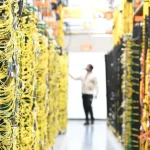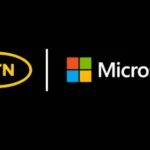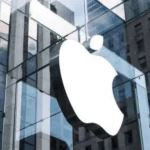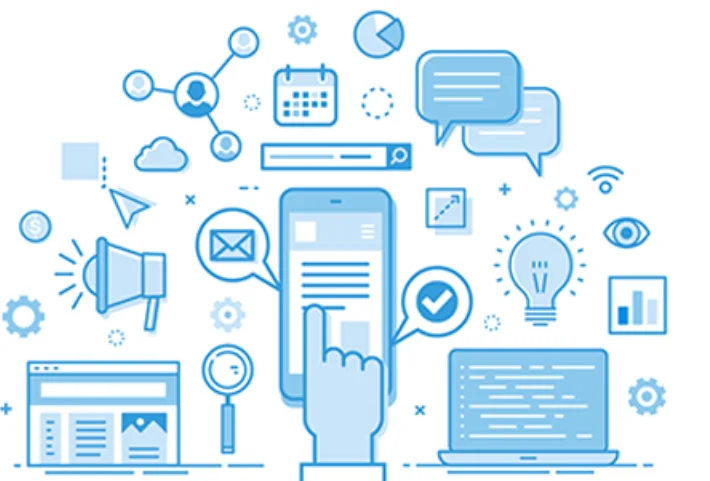Last weekend, at the State House, President Muhammadu Buhari, fresh from a medical checkup in London hosted executives from Microsoft, including its president, Brad Smith, and said that “our emphasis on the development of our Digital Economy has also positioned the sector as a prominent factor in the Nigerian economy,” adding that “we are keen to build on the momentum as we continue to implement our National Digital Economy Policy and Strategy, along with other related policies.”
In essence, the president is arguing that his administration has been, since it resumed office, implementing a series of policies that have positioned Nigeria as a vibrant ecosystem for digital advancement.
No doubt, the digital sector has played a significant role in the Nigerian economy writ large. But if history serves us, president Buhari’s administration has played critical roles that have hampered the country’s readiness to play in the global digital ecosystem in a myriad of ways.
Digitalisation in Nigeria
For long, many African leaders have failed to recognise that it will take more than saying in public that one commits to a course to actually commit to a course. Committing to a course actually includes getting one’s hands dirty to see the course succeed.
For instance, Buhari spoke about wanting to work with western leaders to curb the export of Nigerian talent to the west. Rather than begin the work of building back the Naira and making the country safe, and making the economy stable as a means of encouraging young Nigerians to stay back home, he told western leaders in an Op-ed in politico that “irregular northward migration” caused by what he called a “Fortress Europe approach,” was responsible.
This is part and parcel of the overarching idea that, as joseph Adeiye of the Foundation for Investigative Journalism put it “to be president is not an achievement in itself. Whoever aims to lead this troubled country must be one totally prepared to serve in the common interest of Nigerians.”
A president saying that they commit to a course on the one hand and creating policies that are the antithesis of the course in another hand defeats the idea even if one is the president.
The National Digital Economy Policy and Strategy that Buhari touted as responsible for the success he says the digital ecosystem in the country has enjoyed, which is the symbol of his commitment to making Nigeria a more digital country, is far from accelerating Nigeria’s ranking in the global digital ecosystem.
In the National Digital Economy Policy and Strategy, a handbook of 41 pages including front and back cover pages, released in 2019, the administration makes a list of actions that will help Nigeria become a modern digital economy; Increase of broadbands from 35 per cent to 75 per cent in four years, Increase the use of digital platforms, Creation of “globally recognised certifications” for Nigerians on “digital literacy skills” that will teach Nigerians “Emotional Intelligence,” “Leadership and Social Influence,” “Active learning,” among other things.
In 2019, the World Bank Group launched its first Nigeria Digital Economy Diagnostic Report during an eSummit hosted by the government. The report reveals that although Nigeria is the largest mobile market in Sub-Saharan Africa with a strong mobile broadband infrastructure and a vibrant digital entrepreneurial ecosystem, the lack of infrastructure and connectivity in the country’s rural areas is a key challenge.
The diagnostic found that Nigeria is improving on the provision of digital platforms. For example, the government created a central portal to improve the delivery and quality of public services. With the size of Nigeria’s economy, the report highlighted the enormous opportunities Digital Financial Services (DFS), a driver of financial inclusion, could have for this growing market.
The financial sector has already benefitted from investments in payment systems and financial markets infrastructure, such as the Bank Verification Number (BVN). Millions of Nigerians still lack formal identification records to access a range of public and private services. Financial inclusion in the country has effectively stalled with around 60 million Nigerian adults without access to a formal account
In 2020, as part of the National Digital Economy Policy and Strategy, the Nigerian government launched the Digital Nigeria Mobile App, which is supposed to help Nigerians prepare for the digitisation that the president mentioned. But, like the e-Naira, has not penetrated and gone as far as it should to cause digital disruptions.
Bottomline
Microsoft had already launched a development centre in Nigeria in 2019 before its meeting with President Buhari. This became a reality because Lagos has become a key player in the tech sector, and the world is taking notice. It is unarguable that this has been led by private tech enthusisasts and development masters. We would recall that ICT conttributed 19.72 percent to Nigeria’s GDP in 2021.












